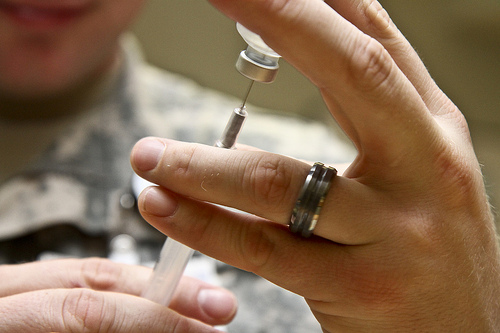
 It’s a good idea to review guidelines as put forth by the American Society for Reproductive Medicine (ASRM) and the following are updated vaccination guidelines for infertility patients. They are quite lengthy and detailed; it is a good idea to print these out and discuss with your physician or infertility specialist.
It’s a good idea to review guidelines as put forth by the American Society for Reproductive Medicine (ASRM) and the following are updated vaccination guidelines for infertility patients. They are quite lengthy and detailed; it is a good idea to print these out and discuss with your physician or infertility specialist.
The new guidelines were established by the Practice Committee of the ASRM, led by Samantha Pfeifer, MD, an associate professor of obstetrics and gynecology at the University of Pennsylvania School of Medicine in Philadelphia. They were published online September 13 in Fertility and Sterility.
“Women of reproductive age often are unaware of their need for immunization, their own immunization status, and the potentially serious consequences of preventable disease on pregnancy outcome,” Dr. Pfeifer and colleagues note. The authors emphasize that physicians must assess the history of immunizations in women before beginning treatment for infertility.
STUDY HIGHLIGHTS
- A common reason for not vaccinating pregnant women is fear of associating a congenital anomaly or miscarriage with the vaccine. However, few vaccines are contraindicated during pregnancy.
- Contraindicated vaccines include the MMR, varicella, intranasal (but not injectable) influenza, and herpes zoster vaccines, which are live attenuated vaccines.
- MMR vaccination is recommended for all women without documented immunity to rubella.
- MMR vaccination should be administered before pregnancy is planned to avoid intrauterine infection risk, although there is no confirmed incidence in which the MMR vaccine has been linked to congenital malformation or intrauterine infection.
- Inadvertent MMR administration during pregnancy is not an indication for pregnancy termination.
- All adults without documented immunity to varicella should receive 2 doses of varicella vaccine, or a second dose if they have received only a single dose.
- Varicella vaccination is contraindicated during pregnancy because it is a live attenuated vaccine.
- Pregnancy should be avoided for 1 month after vaccination.
- If a woman is exposed to varicella infection before pregnancy, the vaccine should be administered within 96 hours of exposure, and pregnancy should be avoided for 1 month.
- Cases of congenital varicella after varicella vaccination have been reported.
- Influenza vaccine (injectable and trivalent inactive vaccine) is indicated in pregnant women.
- Influenza infection increases the risk for medical complications.
- The optimal timing for influenza vaccination is October or November.
- The intranasal influenza vaccine contains live attenuated vaccine and should not be administered during pregnancy.
- Because of the recent upsurge in pertussis infection among infants, it is recommended that all adults aged between 19 and 64 years receive Tdap if they have not previously been immunized.
- In pregnant women, Tdap should ideally be administered in the third trimester or after 20 weeks.
- If not offered during pregnancy, Tdap should be given immediately postpartum both to ensure immunity and to avoid transmission to the newborn.
- Women with chronic medical conditions such as sickle cell disease, diabetes mellitus, or immunocompromise should receive pneumococcal vaccine, ideally before pregnancy.
- Hepatitis A contains no live virus and can be administered during pregnancy to high-risk women.
- Hepatitis B contains noninfectious DNA particles and can also be administered during pregnancy, as needed, with no known risk to the fetus.
- Meningococcal vaccine should be administered before pregnancy, as experience during pregnancy is limited.
- In summary, the authors recommend that physicians be aware of women’s immunization status before pregnancy and update her vaccine status as appropriate.
*image courtesy of USACE Europe District / creative commons
 Patient Portal
Patient Portal